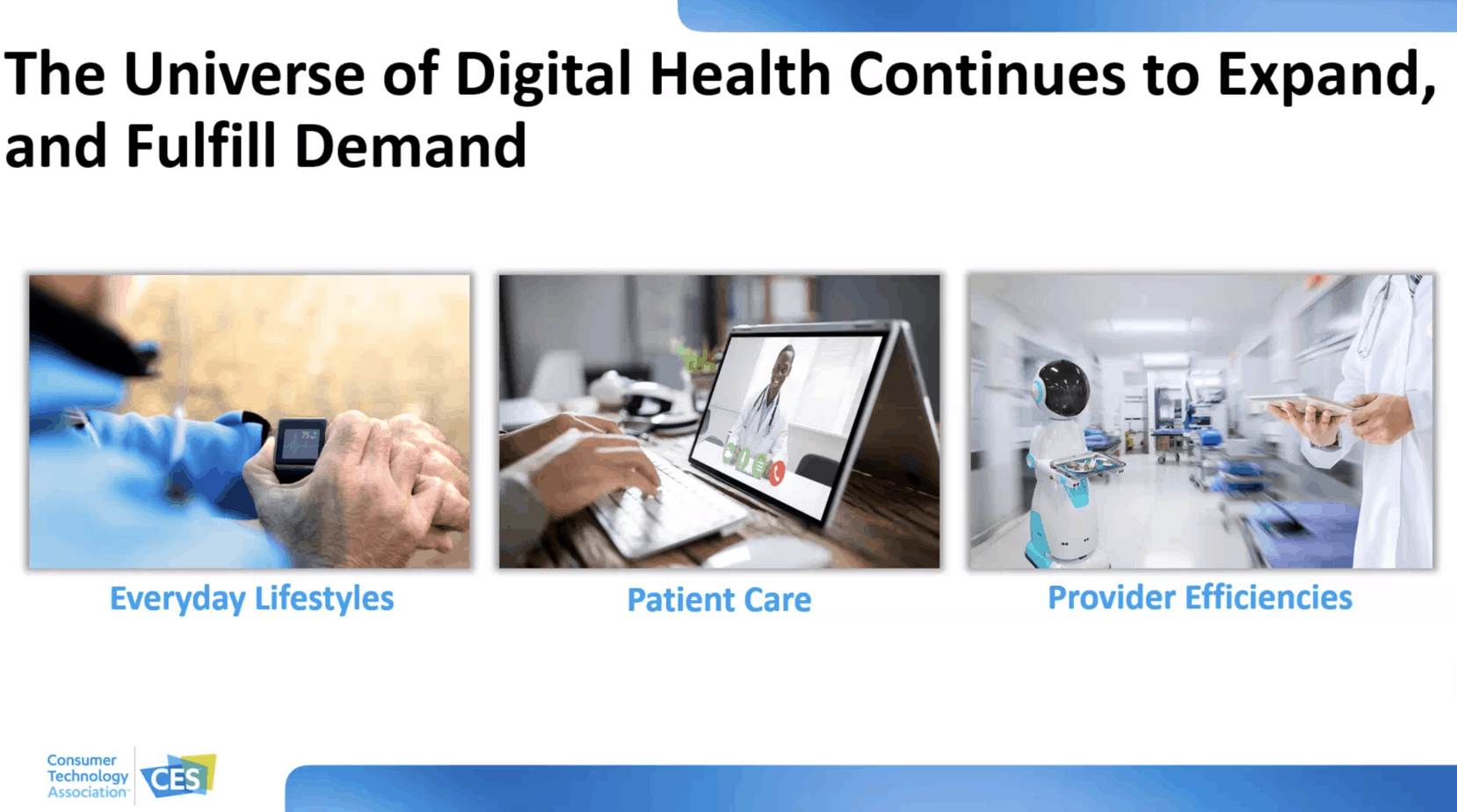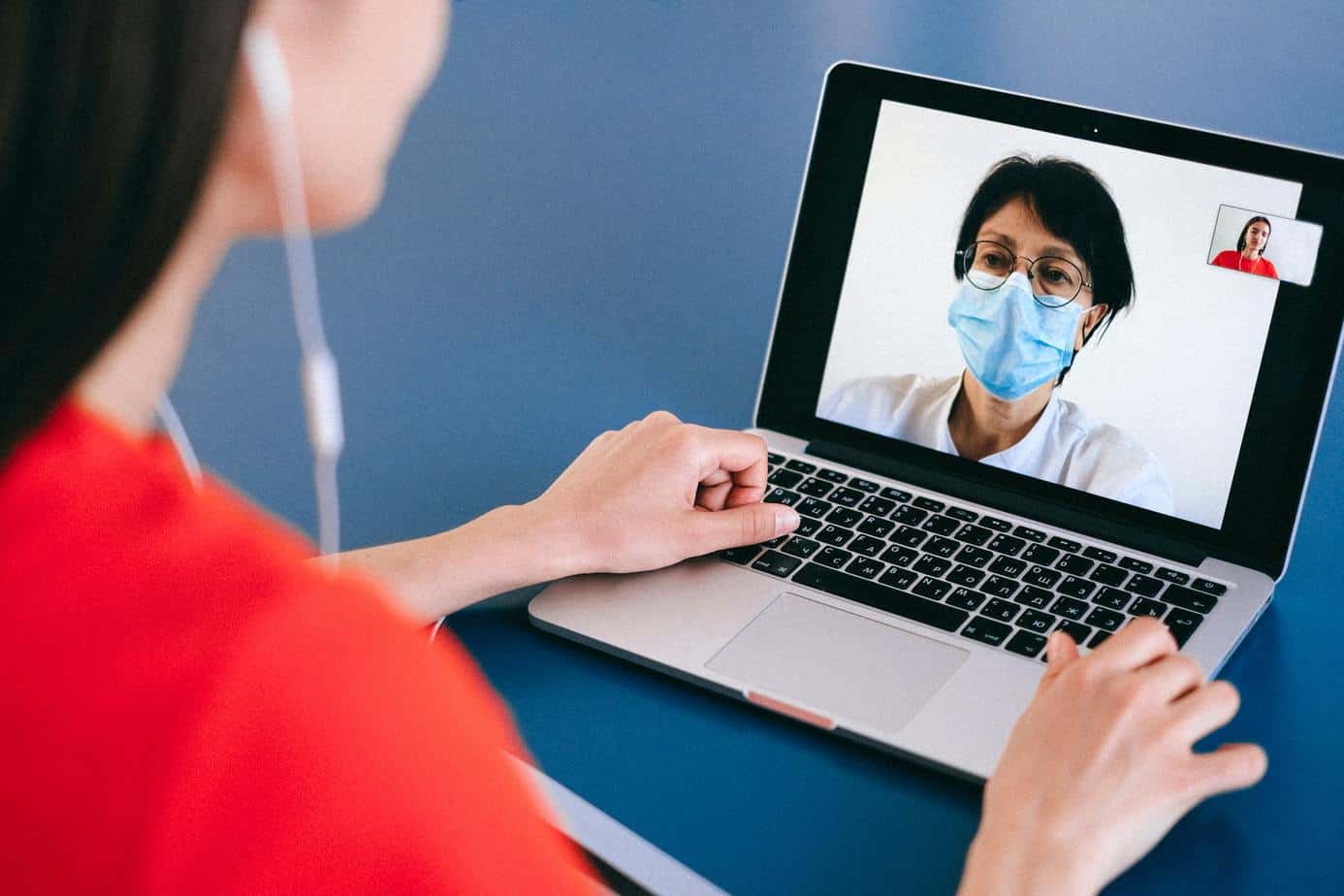It’s unsurprising, particularly in this age of the COVID-19 pandemic, that the category of Digital Health technology is front and center among consumers. The Consumer Technology Association (CTA), which in the interests of preserving attendees’ health will produce an all-digital CES this coming January, provided the press in December a review of its research on trends in the category, revealing that sales of health-related products are expected to continue their skyrocketing rise which began in 2020 into 2021 and beyond.
Quite simply, “the 2020 universe of digital health expanded with unique tools – pandemic-accelerated innovations” that impacted everyday lifestyles, stated CTA Director of Research Lesley Rohrbaugh in citing the research data.
CTA, she said, tracked connected-health-monitoring devices shipments as being valued at $632 million – up a staggering 73 percent from the $365 million figure for 2019. Growth projections for 2021 say shipments will reach $845 million in value, and the category could, by 2024, top the $1.2 billion mark.

Telehealth services, also tracked by CTA, have tripled since the pandemic onset; 33 percent of respondents said they had used these services as compared with just 10 percent before the COVID-19 period.
Corollary categories related to health maintenance have also seen significant sales upticks. Notable among them are health & fitness devices. U.S. unit sales to dealers, at almost six million in 2019, rose 75 percent for 2020 to almost 10.5 million.
Also notable, she added, is the arrival on the market scene of wearable health-related devices that span beyond the smartwatch. One such device she cited as an example, the single-use BioButton system from BioIntelliSense, is an FDA-cleared wearable that provides continuous vital sign monitoring (i.e., temperature, respiratory rate and heart rate) for up to 90 days. The company’s website presents the device as a cost-effective method of COVID-19 symptom monitoring.
As mentioned, the pandemic has served to accelerate acceptance among consumers for digital health technologies – but the acceptance is also extending to the medical provider and insurance communities, the CTA research shows.
Insurance payers, clinicians and health care administrators surveyed at mid-year indicated that they felt that technology has had a positive impact on various aspects of care. Ninety-one percent cited information management and sharing as having been significantly impacted by technology, while 83 percent said quality of care has been positively impacted.
During the all-digital CES, a presentation entitled “The Road to DIY Consumer Health” will be offered to attendees Jan. 13 from 1:40 to 2:20 pm EST that will expand upon these topics.
(Featured Photo: Anna Shvets/Pexels)

Nancy is a contributing editor for Dealerscope.















